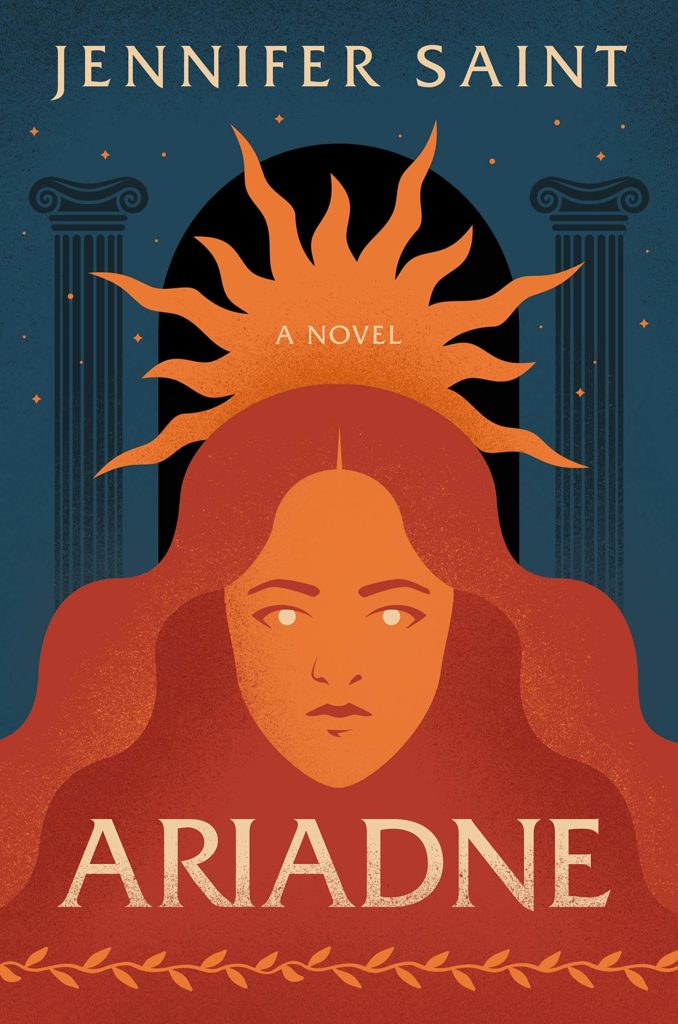Having absolutely adored Circe, I knew I had to read Ariadne! I am a huge fan of Greek myth retellings and ones that feature women in these myths? Even more so! Keep reading this book review for all my thoughts on this new historical fiction!
Summary
As Princesses of Crete and daughters of the fearsome King Minos, Ariadne and her sister Phaedra grow up hearing the hoofbeats and bellows of the Minotaur echo from the Labyrinth beneath the palace. The Minotaur – Minos’s greatest shame and Ariadne’s brother – demands blood every year.
When Theseus, Prince of Athens, arrives in Crete as a sacrifice to the beast, Ariadne falls in love with him. But helping Theseus kill the monster means betraying her family and country, and Ariadne knows only too well that in a world ruled by mercurial gods – drawing their attention can cost you everything.
In a world where women are nothing more than the pawns of powerful men, will Ariadne’s decision to betray Crete for Theseus ensure her happy ending? Or will she find herself sacrificed for her lover’s ambition?
Review

(Disclaimer: I received this book from the publisher. This has not impacted my review which is unbiased and honest.)
Ariadne has so many elements I love: Greek myths, women who push against sexism, and sisters. And while I loved aspects of these elements, the last third of the book disappointed me. I’ll admit, I’m not a huge expert on the Greek myths, specifically the Minotaur and Theseus, but what I initially loved about Ariadne is that it examines Ariadne and Phaedra’s role. Sisters are always going to tug at my heart strings, and I loved that their relationship was so central to the story. Women in Greek myths, especially the mortal ones who love the gods, are often treated awfully.
And I loved that Ariadne is self-aware of their fates. Many times Ariadne herself contrasts her life and the women she hears tales about. Because the gods are not kind to their women. To their lovers in fact. At the beginning I was absolutely entranced by the Minotaur story, but also the ways in which Ariadne continues forwards. To the lives of Ariadne and Phaedra after the myth we may be able to drag from our memory. But what truly disappointed me was the ending and the last 20%. I can handle books not going the way I want, but, as a reader, the last parts of the book made me question the entire book.
(This is no way has to do with the audiobook – which I loved especially the nuances in Phaedra and Ariadne’s voice – but just with the story! Changing voices for different characters is such an art form!)
I absolutely loved the feminist messages in Circe and so I was so disappointed that the messaging I was enjoying seems to unravel by the end. What I look for in a retelling is bringing something new to the original, but Ariadne felt, in many ways, like just seeing the story from another perspective, but without bringing the fresh perspective I was searching for. There was potential and space to explore and grow, but I was left frustrated.
Find Ariadne on Goodreads, Amazon, Indiebound, Bookshop.org, Google Play Books, Libro.fm & The Book Depository.